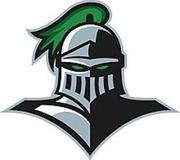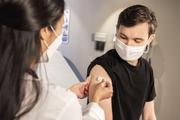
The Corrosion Technology Expansion Project
ate.is/sewardct
Seward County Community College will expand its current Corrosion Technology (CT) program into an online instructional mode that increases access to CT courses for two-year college students and industry workers needing certification or degree. This program will fill the industry's need for qualified CT workers and build a career-ready workforce in this critical sector. The field of corrosion technology is vital for supporting U.S. infrastructure and combating corrosion and decay in the nation's energy storage tanks and plants, energy distribution pipelines, highway and bridge supports, ports and waterways, docks, and military equipment and facilities. Only three colleges in the nation offer CT programs, and online instruction will increase the reach of this program by using cutting-edge learning systems to convey the latest methods in virtual instruction.
This online corrosion technology program will use a hybrid BlendFlex delivery model that will allow students to attend courses in-person, remotely, or asynchronously. This hybrid model will provide new students the flexibility and allow incumbent technicians to learn as they work in the field. Students will follow a rigorous curriculum that integrates hands-on training with theoretical understanding and incorporates the latest advances in the area. This instruction allows the project to increase the number of qualified corrosion technicians and provide an innovative approach that meets the needs of industry nationwide.







